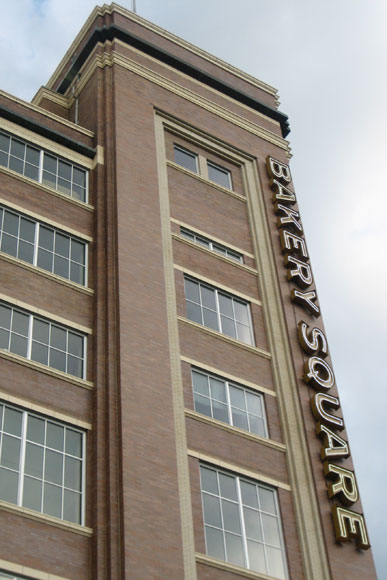In the three decades since the 1980s, when overseas competition and a tepid national economy dried up Pittsburgh’s long-struggling steel industry, economic diversification has been the region’s goal. Now, thanks to a foundation of technological know-how and innovation, advanced manufacturing, financial services, energy, healthcare, life sciences have all found a home here.
The numbers don’t lie: Data from the Pennsylvania Center for Workforce Information and Analysis show postings for high-tech jobs growing by 40 percent over the past year in the metropolitan Pittsburgh region. The Pittsburgh Technology Council (PTC) has 475 locally sourced job openings, most of them calling for software developers with experience.
The region’s hot high-tech sectors have helped to trigger a region-wide reinvention, attracting swaggering Silicon Valley powerhouses such as Google and Apple. Google’s Pittsburgh office houses 450 employees and growing, an influx of intellect necessitating expansion into a new 66,000-square-foot office at Bakery Square.
The city’s technology leaders maintain that the heart of any future success will be continued talent attraction, whether that means fostering it at home or luring it from afar.
Skills pay the bills
About 30 percent of the region’s payroll is invested in its vibrant tech sector, according to PTC, a regional IT trade association with 1,300 members. Though the organization works beside old-guard stalwarts like U.S. Steel, its partnerships cut across Pittsburgh’s employment ecosystem from hardware to professional services firms.
Google’s presence in Bakery Square has jumpstarted the city’s East End, already home to a robust university district that includes University of Pittsburgh and Carnegie Mellon University. As a multinational corporation, Google has the pull to create a mixed-use hub where people live, work and play. Its very name is an attractor for high-caliber talent searching for work with the company in engineering and design, operations or product management.
Whether you’re the next Googler or someone aiming to catch on with Apple, PNC Bank or ANSYS, the skill set needed to join the ranks of Pittsburgh’s well-paid creative class is changing, says PTC CEO Audrey Russo.
Hard knowledge on web frameworks like Ruby on Rails and Microsoft’s .Net is just part of a total package that potential new employees must offer. A base set of analytics and computer science must be underpinned by adaptability, nimbleness and even leadership ability on team break-out projects.
“It’s about adding value to the business,” explains Russo. “All of these jobs are blended now.”
PNC Bank is hiring for 200 tech-centered jobs at its corporate offices in Pittsburgh and Cleveland, with software engineer, systems analyst and project manager among the positions available. Meanwhile, areas like cybersecurity and architecture are also in need of talent as the company shifts to meet the changing requirements of its clients.
“The marketplace is very robust,” says Thomas Halligan, vice president of recruiting and talent acquisition at PNC. “There are a number of opportunities in different areas of the business.”
At a minimum, new employees arrive with technical expertise in business intelligence or data modeling, with extra attention given to candidates with past financial experience. Through the use of an applicant tracking system recruiters can manage and track applicants. Potentially making the task of tracking down workers who combine hard skills with the ability to motivate others, which can be a trickier proposition.
PNC’s talent recruitment team uses a thorough screening process that drills down the personality of client-facing applicants.
“Hard skills are always easier to access; you either have it or you don’t,” explains Halligan. “The softer skills are harder to uncover.”
A ‘war for talent’
Late last month, PTC organized a trip to the West Coast to learn best practices on talent attraction and retention from companies including Google, Electronic Arts and Facebook.
PTC Senior Director Justin Driscoll, who was joined by 15 Pittsburgh companies on the journey, says forward-thinking businesses spend enormous amounts of time and money thinking about creating the ideal culture for their workers. This can range from a paid six-week sabbatical provided by software designer Autodesk to on-site childcare services.
Beyond the surface benefits, Pittsburgh’s rising tech sector must learn to comply with recent changes in employee engagement. Millennial workers, for example, value corporate transparency and having their voices heard. Driscoll points to the interactive town hall meetings at Google’s Mountain View, Calif., headquarters where employees can vote on questions to ask the CEO.
“That kind of engagement definitely could translate to Pittsburgh,” he insists. “There’s nothing we learned (in California) that would be foreign to us.”
Technology firms from across the country are in hot pursuit of young brainiacs graduating from the region’s three dozen colleges and universities, creating a “war for talent” that stretches beyond southwest Pennsylvania, says Lauren Lloyd, senior director of recruitment service delivery at the University of Pittsburgh Medical Center’s Technology Development Center.
The health system’s emergent mobile technology development arm must reach out — the pace of Pittsburgh’s technology market is growing so rapidly that demand is overtaking supply. According to ImaginePittsburgh.com, 57 percent of job openings across all sectors require some level of technical experience. The website also cites 3,000 computer-based jobs that require a four-year degree, while computer-related occupations jumped by five percent last year, twice the growth rate nationally. In 2013, Pittsburgh showed a 54 percent uptick in new investment deals overall, tech-based industries included.
These figures illuminate the path the city is on, as job availability is always going to be first and foremost on a college grad’s list when choosing a place to live. It should not be good enough for Pittsburgh to simply compete with peer Rust Belt enclaves striving to survive in the new economy, says Russo. The region has the skills, jobs and technical know-how to match the top-tier regions where talent flocks in droves.
“Pittsburgh is still a flyover zone that too many people don’t know about,” she adds. “We are creating a successful environment for the next generation of talent.”





